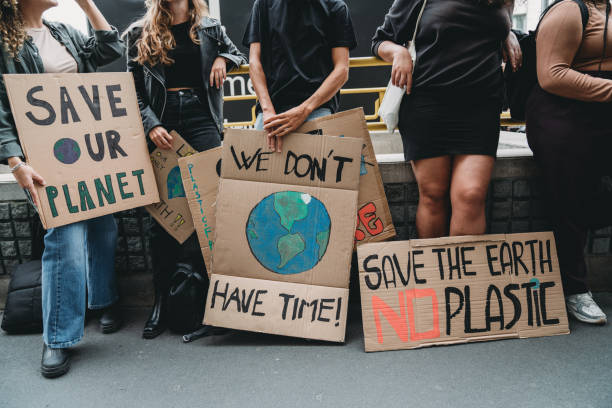Climate change is a highly debated issue affecting all spheres of our existence. From the changing weather to economic factors, the impacts are drastic and far-reaching. One of the countries most prone to climate change is Pakistan, and its impacts on the environment and its people are devastating. The nation has experienced a rise in extreme weather occurrences, sea levels, and melting glaciers that have devastated infrastructure, agriculture, and human health. In this article, the causes of climate change are discussed, as well as its effects on Pakistan, with some likely mitigation strategies to be implemented for adaptation. So fasten your seatbelts as we enter the realm of climate change!
The Devastating Effects of Climate Change
Global warming has already started ravaging the world, and Pakistan is no exception. The nation has witnessed a considerable increase in temperature and unpredictable weather conditions in the last few decades, resulting in a heightened frequency of natural disasters like floods, droughts, and heatwaves.
The warming of glaciers of northern regions of Pakistan by climate change is a grave danger to water resources. The glaciers supply water for agricultural and drinking purposes through rivers that receive their water supply from the glaciers. As they melt at an unprecedented pace, it will lead to frequent flooding that will be followed by drought spells during summers.
Apart from causing damage to the environment, climate change also has negative impacts on the health of human beings. The frequent occurrence of extreme weather patterns like heatwaves exposes people to illnesses such as malaria and dengue fever. Likewise, polluted air due to greenhouse gas emissions by automobiles leads to respiratory diseases.
The economic effects of climate change are also devastating. Agriculture forms a major sector in the economy of Pakistan; however, fluctuating weather patterns have rendered farming very challenging because of long-lasting dry seasons or heavy rains washing out crops.
The destructive impact of climate change on Pakistan cannot be underestimated nor overlooked it needs urgent attention by policy makers with long term adaptation plans towards sustainable development goals that will serve humans and nature equally.
The Causes of Climate Change
Global warming has been a hot issue of debate in recent times, and its causes are many. Greenhouse gas emissions due to human actions like the use of fossil fuels in the production of energy like coal, oil, and gas for powering vehicles and industries is one of the main reasons.
Deforestation is also a major cause since trees remove carbon dioxide from the air which would otherwise be responsible for global warming. Farming, especially livestock farming, also causes climate change due to emissions of methane.
Natural phenomena like volcanic eruptions and solar variation in radiation have all played their part in the past climate change but contribute nothing to the current climate trends compared to human action. The higher concentration of these gases locks more heat in the Earth’s atmosphere resulting in rising temperatures worldwide which induce extreme weather such as hurricanes, floods and droughts.
In spite of measures taken by governments of the globe to restrain greenhouse gas emissions by international agreements such as Paris Accord 2015 there remain nations who are not taking adequate steps or any initiative whatsoever regarding lowering their rate of emissions.
The Effects of Climate Change on Pakistan
The effects of climate change on Pakistan are increasingly becoming more pronounced as time passes. The nation is experiencing serious problems, such as water deficiency from melting glaciers, flooding from extreme rainfalls, and droughts in some regions.
Among the most catastrophic consequences of climate change in Pakistan is on agriculture. With fluctuating weather conditions and temperature changes, crops have been hugely impacted. This has resulted in reduced harvests and an increase in food insecurity across the country.
Climate change also brings profound health hazards to individuals residing in Pakistan. Increased temperatures have led to the rising cases of heatstroke, dehydration, and other heat-induced diseases. Concurrently, altered precipitation patterns have hindered the ability to keep water sources clean that resulted in the spread of waterborne illnesses such as cholera.
Apart from being an environmental and health risk, climate change also has its own economic implications on Pakistan’s population. As the productivity of agriculture is reduced because of unhealthy weather patterns brought about by climate change; most of the farmers lose their jobs, which directly or indirectly lead to poverty among masses.
It can be said that Climate Change is still impacting different sectors of Pakistan; e.g., Agriculture, Health & Economy creating long term effects for decades unless and until we take instant measures towards mitigation strategies & adaptation measures.
Mitigation and Adaptation Strategies for Pakistan
As witnessed, climate change is causing irreparable damage to Pakistan. From weather extremes to economic consequences and health hazards, the nation is confronted with gigantic challenges that need immediate response.
Luckily, there are measures to mitigate and adapt to climate change in Pakistan. One such measure is lowering the greenhouse gas emissions through investment in renewable energy sources like solar and wind power. This not only lowers air pollution but also provides employment opportunities in the industry.
Along with this, it’s necessary that Pakistan adopts measures of adaptation like constructing flood-resistant infrastructure or enhancing farming practices to adapt to changing weather conditions. Climate change education must be put in place at all levels so that individuals are made aware of its effects and take actions towards a sustainable future.
To effectively neutralize global warming, cooperation among nations is important. Together, by working toward common goals of possibly decreasing carbon emissions or reserving natural resources, we can start to make significant alterations that help to mitigate many effects of this change on our earth.
It’s time Pakistan and the world for that matter acted on this impending danger before it’s too late. With a mix of mitigation and adaptation measures, we can ensure a better future for ourselves and yet unborn generations.

Conclusion
In summary, the catastrophic consequences of climate change in Pakistan cannot be overlooked anymore. Pakistan is already facing the brunt of global warming, more frequent extreme weather events, and the degradation of critical ecosystems. All these effects have dire implications for Pakistan’s agriculture, water resources, human health, and economy.
It is necessary for Pakistan to take urgent and collective measures to adapt and mitigate climate change. It involves a mix of policy measures, technological innovation, and changes in individual behavior. The government needs to make investments in renewable energy, sustainable transport, and climate-resilient infrastructure a priority. In addition to this, there is a need for public campaigns and educational activities that can raise awareness about the seriousness of the issue and promote citizens to adopt green behavior.
If Pakistan does not act promptly and firmly, the implications will be disastrous. The country’s most vulnerable populations will suffer the most from climate change, and the gains achieved in recent decades towards poverty alleviation and economic growth will be lost. Hence, it is imperative that everyone acts together to confront this existential crisis and ensure a sustainable Pakistan.
